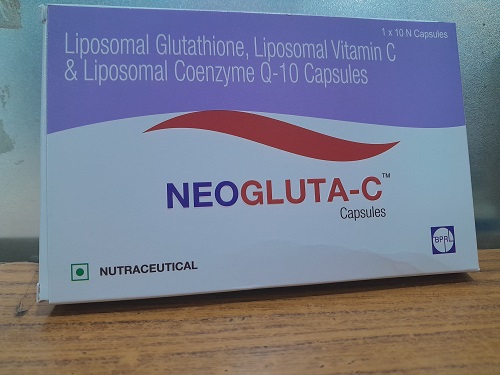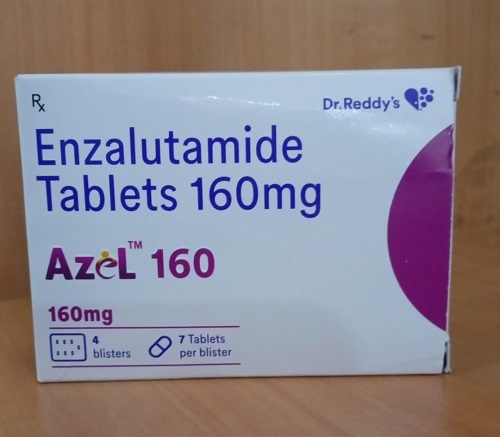Product Introduction:
Lenmid is an oral prescription medication used as part of combination chemotherapy regimens or as monotherapy in certain cancers. It is manufactured by Cipla Ltd, a leading Indian pharmaceutical company. The drug is marketed in capsule form and is classified as an immunomodulatory agent and antineoplastic agent.
Uses (Indications):
Lenmid is used in the treatment of multiple types of cancers and blood disorders, including:
-
Multiple Myeloma (MM): Often used with dexamethasone as first-line or maintenance therapy
-
Myelodysplastic Syndromes (MDS): Especially in patients with 5q chromosomal deletion
-
Mantle Cell Lymphoma (MCL): In patients who have failed previous treatments
-
Follicular and Marginal Zone Lymphomas: As second-line or salvage therapy
-
Chronic Lymphocytic Leukemia (CLL): In select refractory or relapsed patients
-
Off-label use: Occasionally used in other malignancies under specialist guidance
Storage Instructions:
-
Store in a cool, dry place, ideally between 15°C to 30°C (59°F to 86°F)
-
Keep in original packaging to protect from light and moisture
-
Keep out of reach of children and pets
-
Do not store in bathrooms or humid areas
-
Dispose of unused capsules through hazardous waste programs — not in household trash
How It Works (Mechanism of Action):
Lenalidomide exerts its anticancer effects through multiple biological mechanisms:
-
Immunomodulation: Enhances T-cell and NK cell function, boosting immune attack on malignant cells
-
Inhibition of angiogenesis: Suppresses new blood vessel formation that tumors need to grow
-
Direct anti-proliferative action: Blocks the cell cycle and induces apoptosis (programmed cell death) in cancer cells
-
Cytokine modulation: Alters inflammatory signaling (e.g., TNF-alpha, IL-6) that supports tumor growth
This multi-pronged action makes it highly effective in hematologic malignancies like myeloma and MDS.
Side Effects:
Common Side Effects:
-
Fatigue and weakness
-
Nausea or vomiting
-
Diarrhea or constipation
-
Muscle cramps
-
Mild rash or dry skin
-
Dizziness or insomnia
Severe Side Effects:
-
Bone marrow suppression: Neutropenia, anemia, and thrombocytopenia – may require dose adjustment
-
Thromboembolism: Risk of deep vein thrombosis and pulmonary embolism (especially with steroids)
-
Severe skin reactions: Stevens-Johnson Syndrome (SJS), toxic epidermal necrolysis (TEN)
-
Liver injury: Elevated liver enzymes or hepatotoxicity
-
Secondary malignancies: Rare, but documented risk of new cancers developing
-
Birth defects: Extremely teratogenic; can cause severe fetal deformities or death
Dosage (Typical Recommended Dose):
Multiple Myeloma:
-
25 mg once daily on Days 1–21 of a 28-day cycle (with dexamethasone)
Myelodysplastic Syndrome (with 5q deletion):
-
10 mg once daily, continuously
Mantle Cell Lymphoma:
-
25 mg once daily on Days 1–21 of a 28-day cycle
Note: Dose adjustments are required in patients with renal impairment or hematologic toxicity. The starting dose depends on indication and kidney function.
Method of Administration:
-
Swallow the capsule whole with a glass of water
-
Can be taken with or without food
-
Do not crush, chew, or open the capsule
-
Handle with care – wear gloves if you are a caregiver
-
Wash hands thoroughly after handling the medicine
Precautions:
-
Pregnancy Category X: Absolutely contraindicated – must not be used in pregnancy
-
Females of reproductive age must use two effective forms of contraception
-
Regular pregnancy tests are mandatory during treatment
-
Males must use condoms if their partner is of childbearing potential
-
Monitor CBC, liver, and renal function regularly
-
Caution in patients with history of clotting disorders or cardiovascular disease
Drug Interactions:
-
Dexamethasone: Increased risk of thrombosis, but often used together in multiple myeloma
-
Erythropoietin agents: May further increase VTE risk
-
Anticoagulants: Increased bleeding risk – requires close INR monitoring if on warfarin
-
Live vaccines: Should be avoided due to immunosuppression
-
Digoxin and other P-gp substrates: Potential increased blood levels
Allergies (Warnings for Allergic Reactions):
-
Hypersensitivity reactions may include rash, itching, swelling, or fever
-
Severe skin disorders like SJS/TEN may occur — seek immediate attention
-
Do not take Lenmid if you’ve had an allergic reaction to Thalidomide or Lenalidomide previously
-
Immediate discontinuation is necessary if signs of a serious allergic response occur
Overdose Information:
-
Overdose may lead to severe cytopenias, lethargy, or other systemic toxicity
-
There is no specific antidote – treatment is supportive and symptomatic
-
Hospitalization may be necessary for monitoring and supportive care
-
If overdose is suspected, seek emergency medical attention immediately
Missed Dose Instructions:
-
If missed and remembered on the same day, take it immediately
-
If it’s the next day, skip the missed dose and take the next one as scheduled
-
Do not double dose to make up for missed capsules
-
Inform your doctor if more than one dose is missed in a cycle
Additional Notes:
-
Lenmid is a highly regulated medicine and requires enrollment in a pregnancy prevention program
-
Patients must be counseled about side effects and handling precautions before starting
-
Regular lab tests are essential for safe and effective treatment
-
Notify your doctor if you experience bleeding, fever, numbness, or unusual bruising
-
Patients should not share this medication with anyone, especially pregnant women




